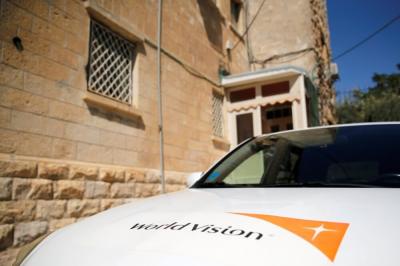Senate committee report: World Vision failed to vet group that funded terrorists

World Vision should have known that the Islamic group it funded and worked with in Sudan was dedicated to funding terrorism, the U.S. Senate Finance Committee said in a new report.
“Based on the evidence presented, we conclude that World Vision had access to the appropriate public information and should have known how, but failed to, properly vet ISRA as a subgrantee, resulting in the transfer of U.S. taxpayer dollars to an organization with an extensive history of supporting terrorist organizations and terrorists, including Osama Bin Laden," the Dec. 23 report reads.
“World Vision’s system for vetting prospective sub-grantees was borderline negligent and ignored elementary level investigative procedures, such as failing to conduct basic secondary research."
If World Vision had looked up the Islamic Relief Agency using free online search engines, it would have learned the group funded terrorism, said the report. Although the money World Vision gave probably wasn’t used to fund terrorist activities, giving money to terrorist groups even for humanitarian purposes “inevitably aids their terrorist activities.”
According to the Senate report, World Vision worked with ISRA from 2013 to 2015, partly to provide food security, sanitation equipment and health services in Sudan. But the Middle East Forum found the charity’s relationship with ISRA dates back to 2011, when the radical Islamist-led Sudanese government required international charities in the country to work with local partners.
The U.S. placed sanctions on ISRA in 2004 for its ties to terrorist organizations, including funneling money to Maktab Al-Khidamat, the predecessor to al-Qaida controlled by Osama Bin Laden, and Hamas. ISRA also helped relocate Bin Laden as he was among the FBI’s most wanted terrorists.
The Senate probe was prompted by Middle East Forum’s 2018 report that uncovered the funding of ISRA through World Vision.
World Vision released a statement in 2018 saying there was no indication in 2014 that ISRA was a terrorist group, and that USAID approved its partnership with ISRA. The organization also said that it warned the U.S. Treasury Department’s Office of Foreign Office Control and USAID that it had concerns about ISRA being related to terrorist groups with similar names.
World Vision told Congress it had checked OFAC’s database of sanctioned groups, which lists ISRA and mentions that all of its offices worldwide are sanctioned. However, World Vision started working with the group anyway, dismissing the findings because OFAC’s list of sanctioned groups says ISRA’s offices are in Missouri, not Sudan. The Senate probe showed that the OFAC listing states that ISRA is headquartered in Khartoum, Sudan.
In late September 2014, World Vision was notified that ISRA was involved with terrorists and immediately ceased all payments to them. On Nov. 19, World Vision sent a letter to OFAC asking for clarification about ISRA’s status.
On Jan. 23, 2015, OFAC told World Vision to stop sending ISRA payments because the group was sanctioned for terrorism, according to the congressional report. World Vision complied, but on February 19, it asked OFAC if it could pay ISRA for previous services. Not doing so would leave the charity open to lawsuits and possible expulsion from Sudan, World Vision said, and it faced considerable pressure from Sudan’s government to pay the group. OFAC then authorized World Vision to pay the group $125,000.
At the time, World Vision defended its “robust controls and screening processes” and condemned “any diversion of aid funding.” It also said it has “no evidence that any of our funds have been used for anything other than urgent humanitarian work.”
However, the Senate concluded in its recent report that the organization lacks a “fundamentally sound system of screening and vetting” and that it needs to make changes to “restore the public’s trust.”
“Particularly concerning to this Committee is World Vision’s attempt to shift the blame to the federal government for their own inability to properly vet a subcontractor,” the Senate report said.
World Vision has made changes in its screening methods in response to the incident. But the Senate committee still “has reservations concerning World Vision’s ability to avoid situations similar to the ISRA - Blue Nile Recovery Program incident in the future. World Vision’s posture during and after this episode gives the impression they have externalized the responsibility for vetting the groups and organizations with which they choose to affiliate.”
The committee urged the charity to engage more with OFAC.
Senate Finance Committee Chairman Chuck Grassley, R-Iowa, called World Vision's charitable work "admirable" but said it should have known about ISRA's status. "Ignorance can’t suffice as an excuse," he said. "World Vision’s changes in vetting practices are a good first step, and I look forward to its continued progress.”
In a written statement to The Christian Post, World Vision’s media relations spokeswoman, Sheryl Watkins, said, “World Vision is ... pleased that the committee staff’s report praised the changes we have made to our vetting process. And we also take seriously the committee staff’s recommendations to continue to examine other opportunities to improve the effectiveness of our blocked parties screening processes.”
World Vision has a charity rating of four stars on website Charity Navigator and a total revenue of over $1 billion a year.
The situation with ISRA is not the only incident where World Vision leaders have been accused of sending charity funds to terrorists.
Israeli police arrested World Vision Gaza manager Mohammad El Halabi in 2016 for providing support to the Palestinian terrorist organization Hamas. Israel said El Halabi had infiltrated World Vision to funnel tens of millions of dollars to Hamas using fake charity projects. World Vision shut down its Gaza office. El Halabi pleaded not guilty to all charges against him. As of now, Israel has yet to prove the charges against him.





















